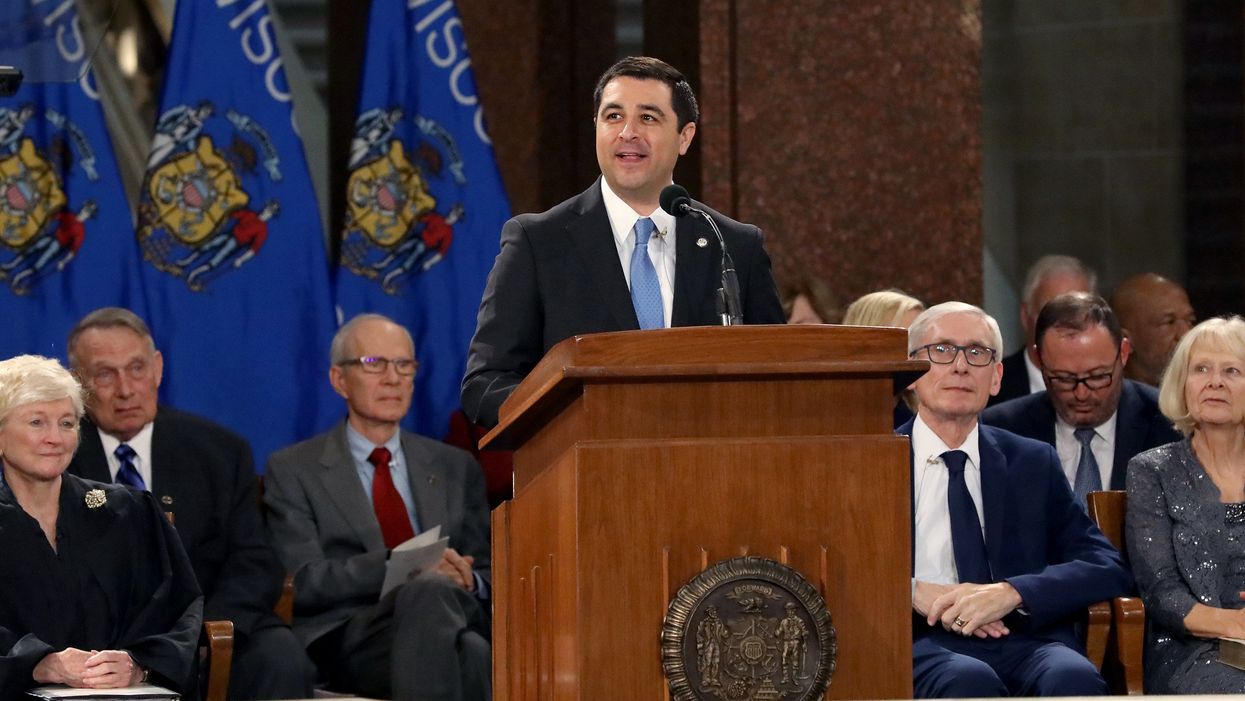The Wisconsin Supreme Court will be the next player in the high-stakes game of legal pingpong over the future of 209,000 names on the registration rolls.
The conservative Wisconsin Institute for Law and Liberty, which has been fighting since last fall to get those people stricken from the roster of eligible voters, is asking the state's highest court this week to reverse an appeals court ruling from last week that said there should be no such removal.
The dispute is the most intense voter purge fight now underway in an undeniable presidential battleground. Donald Trump's margin of victory in the state was less than 23,000 last time — or about one-ninth the number of voters now in dispute, most of whom are identified with addresses in Democratic precincts. And Wisconsin's 10 electoral votes are central to the strategies of both parties this fall.
"Wisconsin deserves clean elections in 2020," Rick Esenberg, the president of the Wisconsin Institute for Law and Liberty, said in announcing the appeal.
"I think that this decision is a win not only for the voters who were close to being purged, but also for democracy," said Josh Kaul, the state's Democratic attorney general.
A decision by the state Supreme Court not to get involved (it's bypassed opportunities to intervene so far) would be a decisive win for voting rights advocates. But if the justices decide to hear the case, and end up reversing the 4th District Court of Appeals to decree that the names should get dropped, the voters will put their hopes in a separate lawsuit being pressed on their behalf in federal court by the League of Women Voters.
The dispute got started last fall after 209,000 registered voters were flagged by a computer algorithm as having changed their residences. The state Board of Elections, with an equal number of Republicans and Democrats, decided unanimously that — since such computer runs in the past had mistakenly tagged thousands of voters as having moved away — any purge should be delayed until after this November's election to allow any errors to be identified without disenfranchising people.
That's when the conservative legal foundation sued, arguing state law did not give the board that sort if discretion. The law requires deactivating the registrations of people who don't respond within a month to notices saying there is reliable information they have moved out of state.
A judge in Ozaukee County, a heavily Republican suburban area north of Milwaukee, ordered the voters immediately removed. When the state board deadlocked on how to respond, he ordered them fined and held in contempt.
On Friday, three judges on the appeals court unanimously took the opposite position — essentially ruling that state law leaves it up to local elections clerks to decide when to deactivate voters, and provides no role for the state elections board.
"In interpreting the Wisconsin Statutes, courts may not rewrite the plain language of the statutes the Legislature has enacted," the judges wrote. "Acceptance of the arguments of plaintiffs would cause us to rewrite statutes enacted by the Legislature, and that we cannot do."
The decision will allow for the thousands of voters to stay on the rolls for at least the next five weeks, when Democrats will award 84 delegates in the April 7 presidential primary.
And even if a voter has their registration deactivated, they may register again, even on Election Day when they show up at the polls, assuming they have the necessary proof of identity and residency.
The initial computer run produced a list of 234,000 inactive voters, but that number has been reduced about 10 percent by people who have proven their eligibility and residency.




















